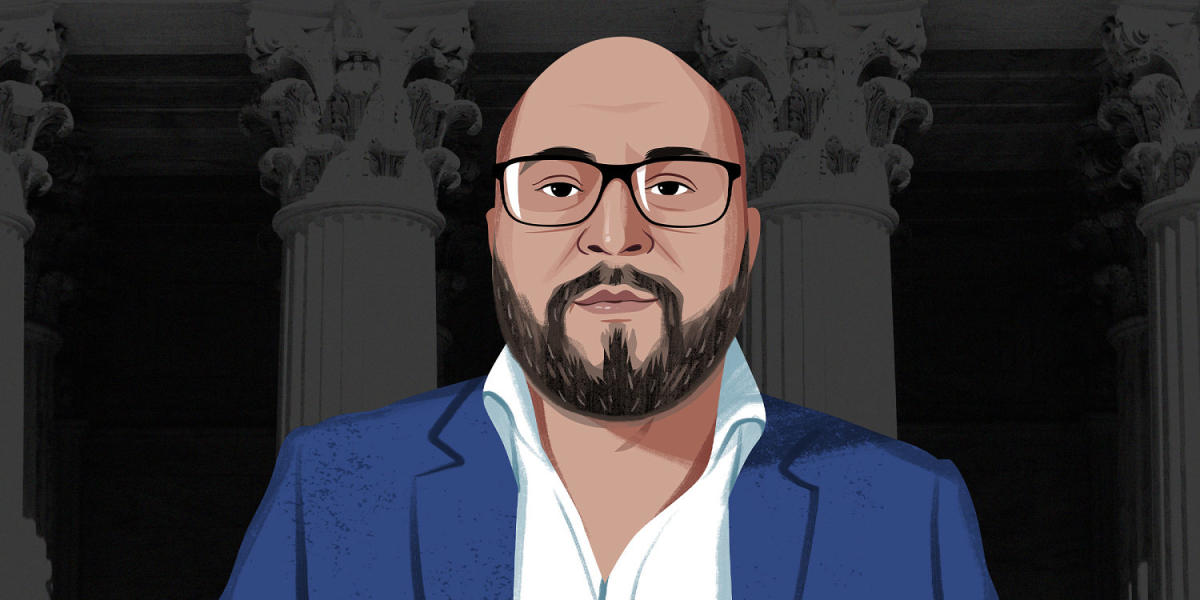“The religious group wanting SCOTUS to legitimize their request, apparently, to limit books about gender and sexuality seems unduly general and an attempt to further confuse the rights to information for all people. Could you comment on this situation?”
— James Edward Carlos, Sewanee, Tenn.
Hi James,
Let’s look at that case, Mahmoud v. Taylor, to understand how it reached the Supreme Court and what it could mean for religious claims in public schools going forward.
The legal question that the justices recently agreed to consider is: “Do public schools burden parents’ religious exercise when they compel elementary school children to participate in instruction on gender and sexuality against their parents’ religious convictions and without notice or opportunity to opt out?”
The case was brought by parents in a Maryland county outside of Washington, D.C. In their petition that convinced the justices to take up the appeal, they said they aren’t challenging the school curriculum itself. Instead, they claim that forcing instruction contrary to parents’ religious beliefs violates the First Amendment — specifically, the amendment’s free exercise clause.
So, the parents aren’t asking to limit LGBTQ-related books per se, but they want the option of restricting their children’s exposure to views that they said are at odds with their faith. However, a divided federal appeals court panel said it wasn’t enough that the parents took issue with the effect of the school board’s refusal to let them opt out. “Supreme Court precedent requires some sort of direct or indirect pressure to abandon religious beliefs or affirmatively act contrary to those beliefs,” the appellate panel said, rejecting the parents’ bid for a preliminary injunction against the school policy.
Notably, the panel majority stressed that it was evaluating the issue at a preliminary stage of the litigation, which affected the legal analysis.
“We take no view on whether the Parents will be able to present evidence sufficient to support any of their various theories once they have the opportunity to develop a record as to the circumstances surrounding the Board’s decision and how the challenged texts are actually being used in schools,” it said in the opinion by 4th U.S. Circuit Court of Appeals Judge Steven Agee. The George W. Bush appointee was joined by Judge DeAndrea Gist Benjamin, a Joe Biden appointee. “At this early stage, however, given the Parents’ broad claims, the very high burden required to obtain a preliminary injunction, and the scant record before us, we are constrained to affirm the district court’s order denying a preliminary injunction,” Agee’s majority opinion said.
Subscribe to the Deadline: Legal Newsletter for expert analysis on the top legal stories of the week, including updates from the Supreme Court and developments in Donald Trump’s legal cases.
The dissenting judge was A. Marvin Quattlebaum Jr., a Donald Trump appointee who said the parents had shown a sufficient free exercise burden. He wrote that they were put to a choice of either “compromising their religious beliefs or foregoing a public education for their children.” The judge noted that the parents “do not claim the use of the books is itself unconstitutional” and they don’t “seek to ban them,” but rather “only want to opt their children out of the instruction involving such texts.” He said the panel should’ve blocked the county from denying religious opt-outs.
Despite the preliminary nature of the litigation and the procedural caveat to the majority ruling against them, the parents appealed to the Supreme Court to put the issue in front of the justices now. The parents told the justices in their petition that there’s division in the lower courts over the issue, which is generally a reason for the high court to step in and settle any division to maintain national uniformity in the law. Unsuccessfully opposing high court review, Maryland school officials said there’s no such division and that, to the contrary, no appeals court has ever endorsed the theory pressed by the parents: that those who send their children to public school necessarily suffer a burden on their religious exercise by virtue of their children’s “exposure” to instruction in said school. Officials said the parents “seek to unsettle a decades-old consensus that parents who choose to send their children to public school are not deprived of their right to freely exercise their religion simply because their children are exposed to curricular materials the parents find offensive.”
Viewed through the lens of the school officials’ warning, then, the Supreme Court could make a profound change in the law and the operation of the nation’s public schools if it sides with the parents here. And to be sure, the Roberts Court has been solicitous of religious claims that align with conservative politics, including in the school context, as was evident in the court’s siding with the praying football coach in Kennedy v. Bremerton School District. This new case isn’t scheduled for oral argument yet, but the hearing should give us a sense of how far the court is willing to go.
Have any questions or comments for me? I’d love to hear from you! Please email deadlinelegal@nbcuni.com for a chance to be featured in a future newsletter.
This article was originally published on MSNBC.com
